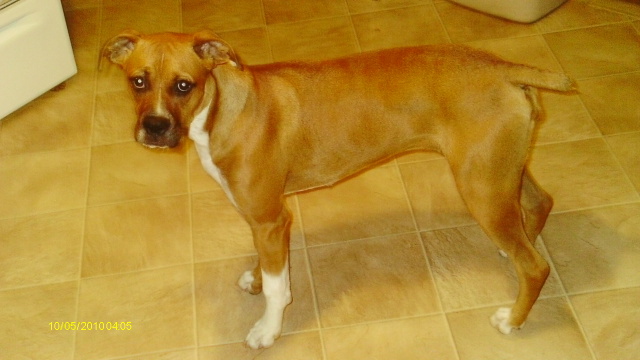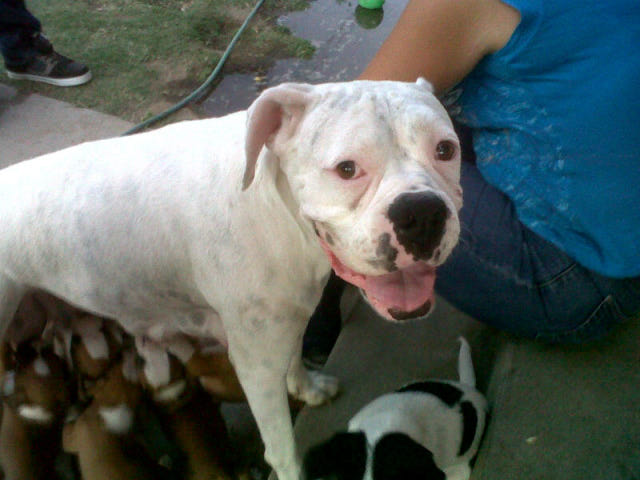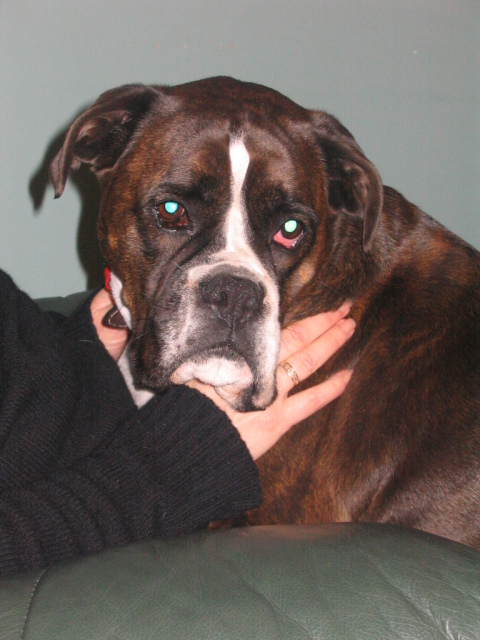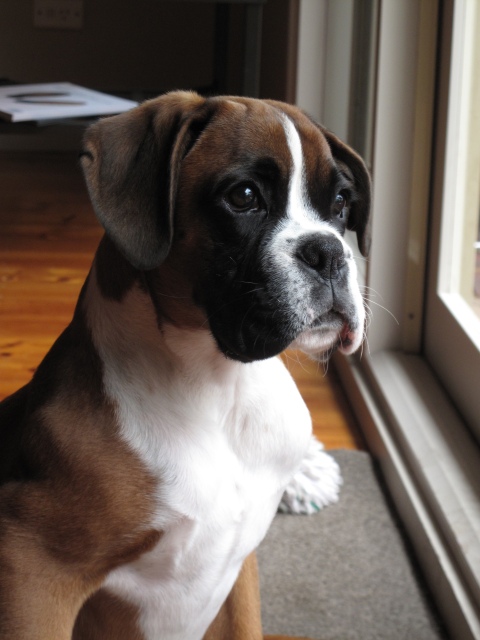Questionhi Jennifer,
I have a 4 month old puppy that we rescued from the SPCA,the SPCA rescued him from this barn with cages of dogs stacked to the ceiling. Now these dogs lived in cages ever scenes they were born, so when they went to the bathroom, they would lay in it all the time. So all the things I've read about housebreaking a puppy...it says to cage train them...don't yell at them...have a cage small for them so it cant designate a space to potty, but if my dog lived in a cage all its life, i feel bad to put him in his cage, and Cole is already used to sitting in its #1 an 2 so what do i do to help him be houseboken? please help me!
Courtney
AnswerHi Courtney,
Using a crate for housetraining will probably not be as helpful for you as it is for many others, but I would still suggest you working on making Cole comfortable being in a crate (or maintain his comfort level in one if he's already there); there are numerous reasons a dog may need to be crated - many if not most of them are stressful, and crating a dog who isn't used to it only adds to the stress. You don't have to keep him in his crate all the time, just get him comfortable spending a few hours there (this can progress gradually as he gets older); feeding him in his crate often helps to associate "Good Things" with crating, and makes dogs more apt to be comfortable in the crate.
That said, as far as housetraining goes, just approach it as if he's a brand-new puppy. He needs to go out every time he wakes up, after he eats, after he's been playing, and about every 10-15 minutes when he's awake. If you can't watch him, put him in his crate or a puppy-proofed area (an ex-pen comes in handy, here) that has a designated potty spot - newspapers can work, but a sturdy box (or perhaps even a crate pan, depending on depth) with a piece of sod in it will have less of a 'holding back' effect on the crate training. (You will need to replace the sod after a while, of course.) Puppies tend to associate surfaces with elimination, so the more you can associate eliminating with the feel of grass under his feet, the better. You can also keep him on his collar and lead, attached to your waist - this also teaches you to be constantly aware of the puppy - but this is not always practical and may at times be dangerous.
Praise him every time he potties in an appropriate area - go out with him, and take super-yummy treats; praise as he starts going and treat just as he's finishing. No playing while you're out with him for potty breaks - or at least, not until he's pottied - and you can use cues like "go potty" or "hurry up" or whatever you choose; this will help him "focus" when you're outside with him at 3 a.m. during a blizzard. ;) A different cue for each function can be helpful. Ignore any mistakes he makes; if you catch him in the act, interrupt with a sharp "Ack!" and then carry him outside, and praise like crazy when he resumes in the right spot. It will take some time - it takes time anyway, but lack of training at an early age will probably not work in your favor - but with persistence, patience, and perseverance, he will get it. :)
Good luck!!

 boxer?
Question
Missy
Hi, we bought a boxer puppy about 1 year
boxer?
Question
Missy
Hi, we bought a boxer puppy about 1 year
 pure-bred puppy
Questionmom
duke
QUESTION: Hello, my girl
pure-bred puppy
Questionmom
duke
QUESTION: Hello, my girl
 Boxer girl sitting on other Boxers
Question
Lucy knocked out on he
My Boxer girl also sits
Boxer girl sitting on other Boxers
Question
Lucy knocked out on he
My Boxer girl also sits
 A bulldog is coming to visit
QuestionQUESTION: I have an 8 yr old female boxer. My s
A bulldog is coming to visit
QuestionQUESTION: I have an 8 yr old female boxer. My s
 Growing pains?
Question
Rocky
I have an almost 5 month old (in a few d
Growing pains?
Question
Rocky
I have an almost 5 month old (in a few d